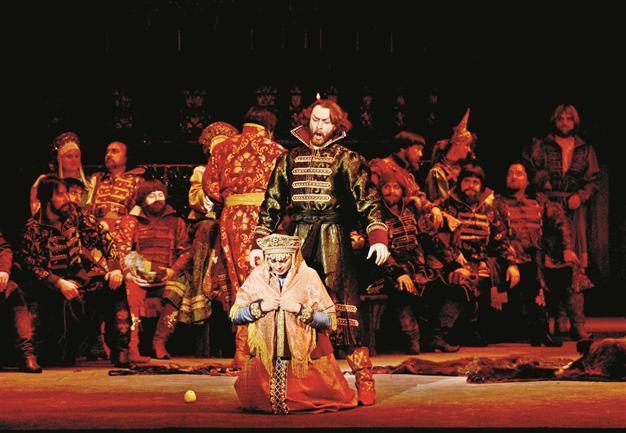Controversial arts draft law comes to table
ANKARA - Anadolu Agency

Artists contend that the draft law will result in the closure of 55 state institutions including the State Theaters and turn artists into subcontracted workers.
A draft law on the Turkish Art Institution (TÜSAK), which many claim will lead to the closure of current state art institutions such as the State Theater (DT) and the State Opera and Ballet (DOB), was discussed at a meeting in Ankara on March 3.
Artists contend that the draft law will result in the closure of 55 state institutions and turn artists into unqualified or subcontracted workers. It would also give critical authority to 11 people to be appointed to TÜSAK by the Cabinet, which would secure added power to make wide-ranging decisions affecting national arts institutions.
The nearly 11-hour meeting was attended by DT General Director Mustafa Kurt, DOB Director Rengim Gökmen and representatives from more than 50 art institutions and civil society organizations. A group of artists also gathered in front of the meeting place to protest the draft law.
Speaking after the meeting, President Abdullah Gül said that for the first time the government had the opportunity to explain the TÜSAK law to those affected by it. However, some of the attendees stormed out of the meeting in protest. Gül claimed that the draft law had two basic principles: The establishment of a Turkish Art Institution to support arts, and the forming of a Turkish Arts Council to help realize this goal.
“Contrary to discussions, TÜSAK has a goal to support the project owners. The claims that all art events in Turkey will be managed by this law are not true. As for the claims about the closure of the DOB and the DT, they are not true. No, they will not be closed. These institutions will be reconstructed,” he said, adding that the details of the draft law could be reached through the Internet.
Gül noted the discrepancy between the DT’s current budget of 180 million Turkish Liras and the total budget of all private theaters, which is 4 million liras.
“The state should support the arts. We explained how this would be done in the meeting. The criticism that art will lose its freedom with the law is completely wrong. It is stated in the draft law that no institute or individual will be able to give directions,” the president said.
